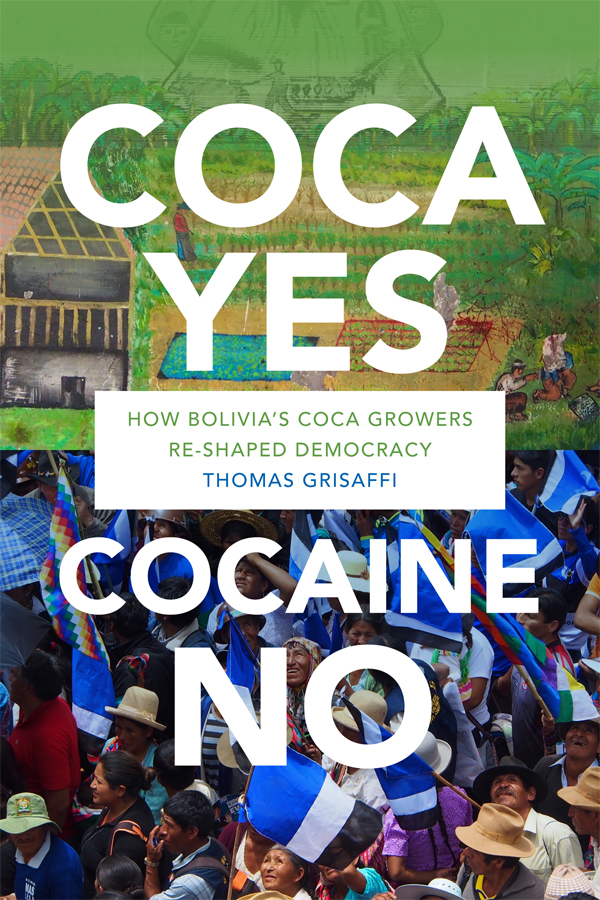In Coca Yes, Cocaine No Thomas Grisaffi traces the political ascent and transformation of the Movement toward Socialism (MAS) from an agricultural union of coca growers into Bolivia’s ruling party. When Evo Morales—leader of the MAS—became Bolivia’s president in 2006, coca growers celebrated his election and the possibility of scaling up their form of grassroots democracy to the national level. Drawing on a decade of ethnographic fieldwork with coca union leaders, peasant farmers, drug traffickers, and politicians, Grisaffi outlines the tension that Morales faced between the realities of international politics and his constituents, who, even if their coca is grown for ritual or medicinal purposes, are implicated in the cocaine trade and criminalized under the U.S.-led drug war. Grisaffi shows how Morales’s failure to meet his constituents’ demands demonstrates that the full realization of alternative democratic models at the local or national level is constrained or enabled by global political and economic circumstances.
Reviewed in ERLACS
“In this vivid ethnographic account, Thomas Grisaffi shows how Bolivian coca growers grew from a criminalized union to a strong social movement with a vernacular vision of ‘radical democracy’ based on kinship, consensus decision-making, and leadership accountability. Yet, despite the claims of Bolivia’s plurinational state, this form of social control could not be scaled up to the national level. This fascinating case study shows that the conditions for realization of alternative democracies locally are always linked, on the one hand, to the constraints of liberalism and, on the other, to broader political economic forces.” — Nancy Postero, author of The Indigenous State: Race, Politics, and Performance in Plurinational Bolivia
“The first substantive ethnography of Bolivia’s coca sindicatos, Coca Yes, Cocaine No adds nuance to discussions of Bolivian cocalero politics that go beyond commonly known official narratives and propagandistic claims. Thomas Grisaffi’s masterful flowing prose and his superior ethnographic research make this an outstanding book, one welcome to specialists in political anthropology, Latin America, the Andean region, ethnography, and drug politics.” — Paul Gootenberg, coeditor of The Origins of Cocaine: Colonization and Failed Development in the Amazon Andes

